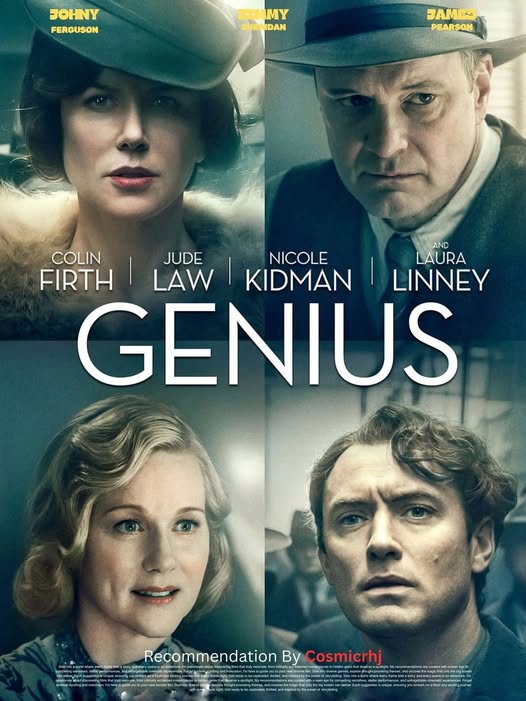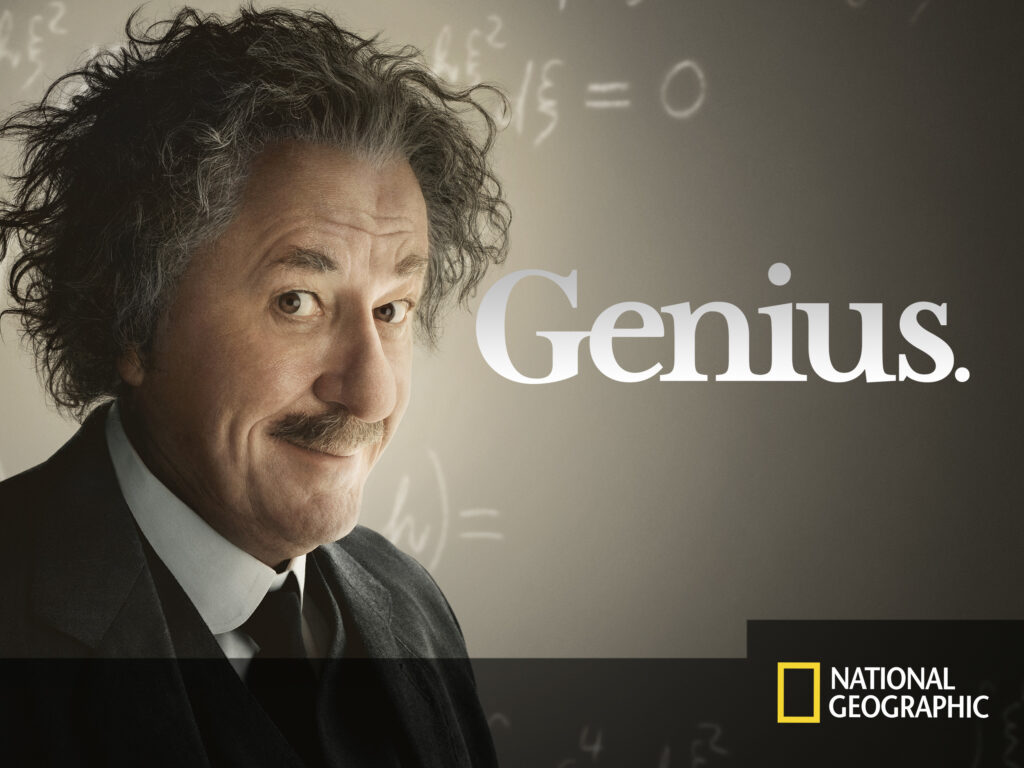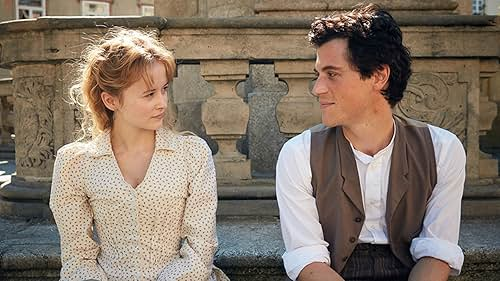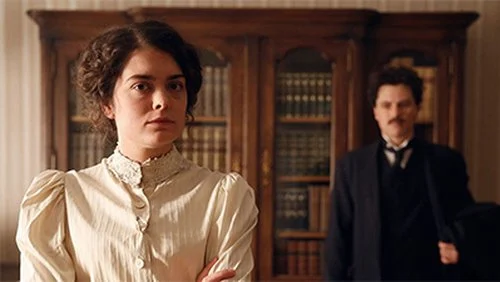“Genius”

Introducing Genius (2016) – A Journey Into the Minds of Literary Legends
✍️ Ever wondered what it takes to create a literary masterpiece? ✍️
Genius (2016) is a captivating biographical drama that transports audiences to the heart of early 20th-century American literature, where brilliant minds like Thomas Wolfe, F. Scott Fitzgerald, and Ernest Hemingway shaped the modern literary landscape. With a stellar cast, masterful direction, and a deeply moving story about friendship, passion, and creativity, Genius is more than a film—it’s a vivid portrait of the people behind timeless classics.
Film Overview
- Title: Genius
- Genre: Biographical drama, historical, literary
- Director: Michael Grandage
- Screenplay: John Logan (based on Max Perkins: Editor of Genius by A. Scott Berg)
- Producers: James Bierman, Michael Grandage, John Logan, Tracey Seaward
- Main Cast: Colin Firth (Max Perkins), Jude Law (Thomas Wolfe), Nicole Kidman (Aline Bernstein), Laura Linney (Louise Perkins), Guy Pearce (F. Scott Fitzgerald), Dominic West (Ernest Hemingway)
- Runtime: 1 hour 44 minutes
- Release Date: June 10, 2016 (USA)
- Distributors: Lionsgate, Roadside Attractions
- Filming Locations: London (UK), Manchester (UK)
- Rating: PG-13 (contains some scenes involving alcohol, smoking, and mature emotional themes, suitable for audiences 13 and up)
- Music: Adam Cork
- Language: English
Plot: A Literary Friendship Full of Passion and Conflict

Genius tells the true story of the extraordinary relationship between Max Perkins, the legendary editor at Scribner’s publishing house, and Thomas Wolfe, a brilliant but unrestrained novelist. Set in the 1920s, the film begins when Wolfe (Jude Law) arrives at Perkins’ (Colin Firth) office with a massive 5,000-page manuscript that would eventually become Look Homeward, Angel, a cornerstone of American literature.
Perkins, who had previously worked with literary giants like F. Scott Fitzgerald (Guy Pearce) and Ernest Hemingway (Dominic West), recognizes Wolfe’s raw talent but faces the daunting task of shaping his sprawling, passionate prose into a publishable work. The film chronicles their collaboration: from intense debates over editing cuts, heartfelt moments of shared literary passion, to personal conflicts as Wolfe’s fame grows and his turbulent personal life—particularly his relationship with his lover, Aline Bernstein (Nicole Kidman)—begins to unravel.
Through the lens of Perkins and Wolfe, Genius explores not just the creation of a book but profound questions: Who is the true “genius”? The writer with his feverish words or the editor who quietly molds them into greatness? Set against the backdrop of America before and during the Great Depression, the film contrasts the glamour of the literary elite with the struggles of everyday life, offering a rich tapestry of human emotion and ambition.
Highlights of the Film

- Outstanding Performances:
- Colin Firth delivers a nuanced portrayal of Max Perkins, a reserved yet deeply insightful editor whose quiet dedication anchors the story.
- Jude Law shines as Thomas Wolfe, capturing the writer’s fiery energy, charisma, and occasional arrogance, making him both endearing and frustrating.
- Nicole Kidman and Laura Linney bring emotional depth to their roles as women caught in the orbit of ambitious men, while Guy Pearce and Dominic West leave lasting impressions as Fitzgerald and Hemingway despite limited screen time.
- Period Authenticity: The film’s sepia-toned cinematography evokes the 1920s and 1930s, from bustling New York publishing offices to lively jazz bars, immersing viewers in a bygone era.
- Music and Visuals: Adam Cork’s score complements the story’s emotional highs and lows, blending vibrant and somber tones to reflect the contrasting personalities of Perkins and Wolfe. Cinematographer Ben Davis crafts a visually rich experience that feels both nostalgic and vibrant.
- Thought-Provoking Themes: Beyond its literary focus, Genius explores friendship, sacrifice, and the cost of talent. A memorable line from Perkins—“Do we really make the books better, or just make them different?”—prompts reflection on the nature of creative collaboration.
Behind the Scenes and Production
Genius marks the directorial debut of Michael Grandage, a renowned theater director, bringing a stage-like intimacy to the film’s storytelling. The screenplay by John Logan, adapted from A. Scott Berg’s Max Perkins: Editor of Genius, is meticulously crafted to honor both protagonists. Filming took place primarily in the UK, with Manchester and London standing in for 1920s New York.
The production team prioritized historical accuracy, from period-appropriate costumes to detailed sets like Scribner’s office, complete with vintage typewriters and handwritten manuscripts. The designers consulted historical records to recreate the world of Wolfe and Perkins, ensuring every detail felt authentic. The film’s pacing and dialogue-heavy scenes reflect Grandage’s theatrical roots, creating a character-driven narrative that resonates with literary enthusiasts.

Audience and Critical Reception
Upon its release, Genius received mixed reviews. On Rotten Tomatoes, it holds a 51% critic score (based on 111 reviews) and a 47% audience score (from over 500 ratings). Some critics felt the film played it too safe, lacking the bold spark of its subjects, with one review noting, “Genius honors figures worth celebrating but doesn’t fully make the case for its own necessity” (Rotten Tomatoes). However, the performances of Firth and Law were widely praised, with some describing Law’s portrayal as “a proto-Jack Kerouac, bursting with energy” (Rotten Tomatoes).
Literary fans and biography enthusiasts often appreciated the film more than general audiences. An IMDb user commented, “I loved how the film showed the tension between writers and editors. The visuals are stunning, the acting is top-notch, and it made me want to reread Look Homeward, Angel.” Others noted the film’s slow pace and lack of dramatic highs, particularly for viewers unfamiliar with Wolfe’s work.
On X, fans shared their thoughts:
- “Jude Law as Thomas Wolfe is electrifying! This film is a must for anyone who loves literature and the creative process.” (@LitLover23)
- “Not for everyone, but if you’re into biographies and the struggles of artists, Genius is a gem.” (@BookNerd88)
Why You Can’t Miss It
- For Literature Lovers: If you’re a fan of Thomas Wolfe, F. Scott Fitzgerald, or Ernest Hemingway, Genius offers a behind-the-scenes look at how their iconic works came to be.
- A Story of Creativity: The film reminds us that genius often requires collaboration and sacrifice, celebrating the unsung heroes behind great art.
- Stellar Acting: The chemistry between Firth and Law is reason enough to watch, delivering performances that linger long after the credits roll.
- Nostalgic Vibe: Genius transports you to the golden age of American literature, with visuals and music that capture the 1920s spirit.
Parental Guidance

Rated PG-13, Genius is suitable for audiences 13 and up. The film includes scenes of alcohol and tobacco use, as well as complex emotional themes related to relationships and personal ambition, but it contains no graphic violence or explicit content. Parents may want to discuss themes like creativity, personal conflict, and the role of editors in literature to enhance the viewing experience for younger audiences.
Embark on a Literary Journey!
Genius (2016) is available on platforms like Fandango at Home, Amazon Prime Video, and other streaming services. It’s the perfect film for a quiet evening when you want to immerse yourself in a story of passion, talent, and timeless friendship.
Who do you think is the true “genius” in this story—Wolfe or Perkins? Share your thoughts, favorite moments, or literary inspirations in the comments, and let’s dive into the world of Genius!
Sources: IMDb, Rotten Tomatoes, Wikipedia, Amazon Prime Video, X posts